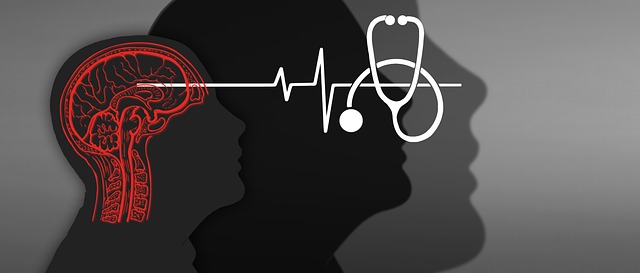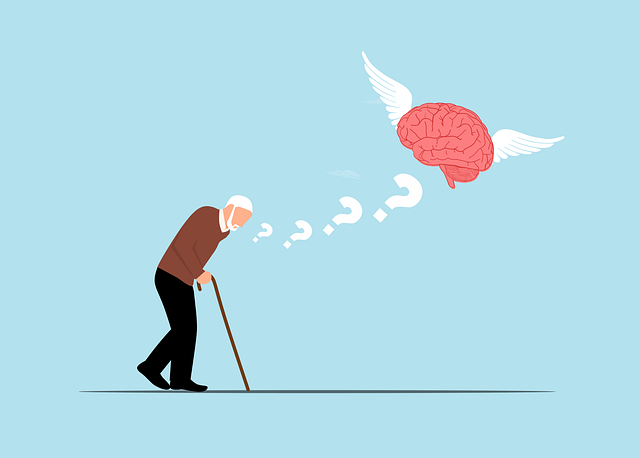Aurora Psychosis Therapy offers impactful stress management workshops that go beyond surface solutions. By combining neurobiology insights, Mind Over Matter principles, and group empathy building, these workshops empower attendees to challenge negative thought patterns and develop resilience against chronic stress. Engaging content ranges from trigger identification to self-care strategies, including role-playing and group discussions. The therapy prioritizes a safe, inclusive environment through clear boundaries, confidentiality, and active listening. Interactive activities, guided meditations, and personal growth exercises enhance trust, bonds, and self-esteem. Post-workshop evaluations ensure the curriculum remains effective, fostering robust coping mechanisms while navigating psychotic disorder risks.
Stress management workshops are powerful tools for facilitating personal growth and well-being. This comprehensive guide, designed for facilitators, explores the art of leading effective sessions that tackle stress head-on. From understanding the profound impact of stress to implementing interactive activities inspired by Aurora Psychosis Therapy, each section delves into practical strategies. Learn how to create safe spaces, engage participants, and measure success, ultimately empowering individuals to navigate life’s challenges with resilience.
- Understanding Stress and its Impact: An Overview for Workshop Facilitators
- Designing Engaging Content: Topics and Techniques for Effective Stress Management Workshops
- Creating a Safe and Inclusive Environment: Fostering Participation and Trust
- Practical Strategies for Delivery: Interactive Activities, Role-Playing, and Group Discussions
- Measuring Success and Follow-Up: Evaluating Workshop Outcomes and Long-Term Impact of Aurora Psychosis Therapy
Understanding Stress and its Impact: An Overview for Workshop Facilitators

Stress is a universal human experience, but understanding its complex nature and impact on mental health is essential for workshop facilitators aiming to empower individuals with effective coping mechanisms. Aurora Psychosis Therapy highlights that chronic stress can lead to various psychological issues, including anxiety, depression, and even cognitive impairment. By recognizing these connections, facilitators can design workshops that go beyond surface-level relaxation techniques.
Workshops should delve into the neurobiology of stress response, teaching participants about the mind-body connection. This includes introducing Mind Over Matter principles, where individuals learn to challenge negative thought patterns and reframe their perceptions. Moreover, facilitators should emphasize Depression Prevention strategies by fostering empathy building within the group, as connecting with others who share similar experiences can be a powerful tool in managing stress and promoting resilience.
Designing Engaging Content: Topics and Techniques for Effective Stress Management Workshops

Designing engaging content is key to ensuring that stress management workshops are both informative and impactful. Topics should cover a range from identifying stress triggers to practicing effective self-care strategies. Incorporating interactive techniques, like role-playing scenarios or group discussions, allows participants to apply theoretical knowledge in practical settings. For instance, sessions could delve into risk management planning for mental health professionals, mindfulness meditation techniques, and healthy coping mechanisms for dealing with work-related pressures.
Integrating Aurora Psychosis Therapy principles can provide unique insights into managing stress among individuals with psychotic disorders. Workshops should offer a safe space where participants feel comfortable sharing their experiences and learning from one another. By combining theoretical understanding with practical exercises, workshops can empower attendees to adopt sustainable self-care practices that enhance overall well-being.
Creating a Safe and Inclusive Environment: Fostering Participation and Trust

Creating a safe and inclusive environment is paramount for successful stress management workshops. At Aurora Psychosis Therapy, we prioritize fostering a space where participants feel comfortable sharing their experiences and expressing their emotions openly. This begins with establishing clear boundaries, ensuring confidentiality, and promoting active listening to make every individual feel valued. A supportive atmosphere encourages honest discussions about stress triggers, coping mechanisms, and personal growth, enhancing the overall effectiveness of the workshop.
Encouraging participation and building trust is a key strategy. Through interactive activities, group exercises, and guided meditations, we facilitate active engagement. This approach not only enhances learning but also strengthens bonds among participants, creating a supportive community. By nurturing self-esteem improvement and positive thinking, our workshops equip individuals with valuable tools to manage stress effectively, ultimately contributing to depression prevention.
Practical Strategies for Delivery: Interactive Activities, Role-Playing, and Group Discussions

Stress management workshops organized by Aurora Psychosis Therapy employ a blend of interactive activities, role-playing, and group discussions to deliver practical strategies for coping with stress effectively. Interactive activities engage participants actively in exercises that promote mindfulness and relaxation techniques, enhancing their ability to manage stress in real-life situations. Role-playing scenarios allow individuals to practice conflict resolution techniques and resilience building skills in a safe environment, fostering confidence and self-assurance.
Group discussions facilitate open conversations about mental health awareness, providing opportunities for sharing experiences and learning from one another. This collaborative approach not only enriches the learning experience but also cultivates a supportive community among workshop attendees. By combining these diverse methodologies, Aurora Psychosis Therapy ensures that participants gain tangible tools and insights to navigate stressful situations with greater ease and resilience.
Measuring Success and Follow-Up: Evaluating Workshop Outcomes and Long-Term Impact of Aurora Psychosis Therapy

Measuring Success and Follow-Up play a pivotal role in evaluating the effectiveness of Aurora Psychosis Therapy workshops. To assess outcomes, a comprehensive approach is implemented, focusing on both immediate and long-term impacts. Post-workshop surveys and individual consultations help gauge participants’ satisfaction and perceived improvements in managing stress and psychotic symptoms.
Additionally, follow-up sessions facilitate a deeper exploration of learned communication strategies and inner strength development, enabling mental health professionals to offer tailored support. This ongoing evaluation process allows for continuous improvement in the workshop curriculum, ensuring that Aurora Psychosis Therapy remains a robust tool in navigating risk assessment for participants while fostering resilience and effective coping mechanisms.
Stress management workshops, enriched by techniques from Aurora Psychosis Therapy, can significantly improve participants’ well-being. By understanding stress, designing engaging content, fostering a safe environment, and employing practical strategies, facilitators can empower individuals to effectively manage their stress. Measuring success through evaluation and follow-up ensures the long-term impact of these workshops, creating lasting positive changes in participants’ lives.














